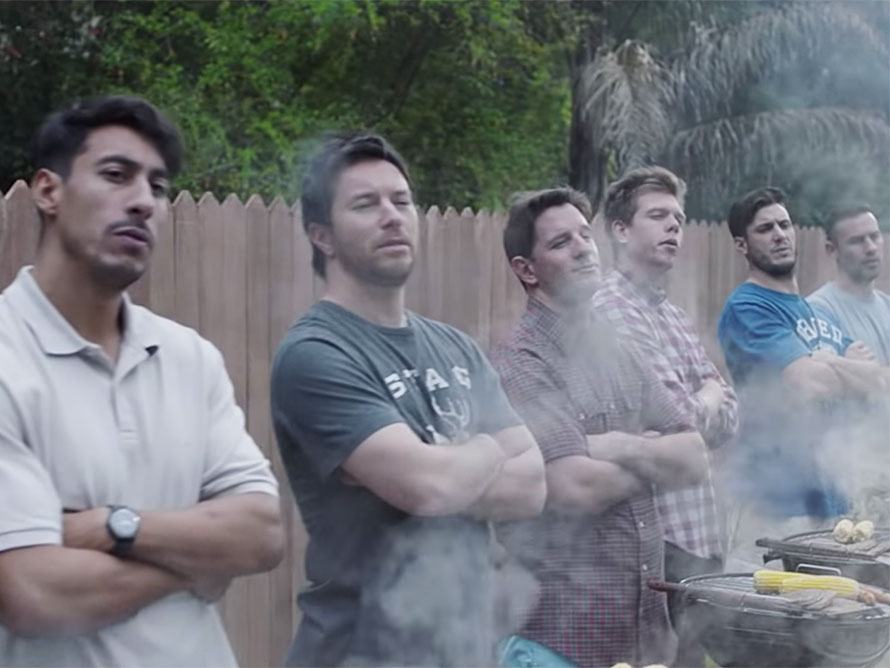Gillette has released a bold new advert attacking toxic masculinity, sparking fierce debate. Some say the ad is insulting and wrong, while others praise its progressive message.
Furious conservatives attack #MeToo Gillette
Gillette has released a bold new advert attacking toxic masculinity, sparking fierce debate. Some say the ad is insulting and wrong, while others praise its progressive message.
Sharp words
"The best a man can get." It has been Gillette's famous slogan for decades.
Not any more. In a controversial new advert, the company sets out a new direction - attempting to promote a new brand of "positive masculinity".
Directly responding to the #MeToo campaign against sexual abuse, the short film shows scenes depicting "toxic" masculine vices. A boss patronising a female colleague; boys bullying and fighting each other; men laughing at sexual harassment. We keep "making the same old excuses" a voice-over states: boys will be boys.
But then, it shows a change. Men intervene to stop harassment; they teach their children to be confident; they choose peace instead of violence.
According to the new tagline, this is "the best men can be."
"It's time we acknowledge that brands, like ours, play a role in influencing culture," said a company statement. "From today on, we pledge to actively challenge the stereotypes and expectations of what it means to be a man."
But not everyone is on board. In a fierce backlash, critics accused the advert of "feminist propaganda". It has been down-voted thousands of times on YouTube, with some pledging to boycott Gillette products altogether.
Chief among the critics was journalist Piers Morgan. "What Gillette is now saying, everything we told you to be, men, for the last 30 years is evil," he said. "I think it's repulsive."
But many others have supported the film. "This commercial isn't anti-male. It's pro-humanity," wrote Bernice King - daughter of Martin Luther King Jr.
Whatever your opinion, big brands will continue to push political and social messages.
Writing in Vox, Sarah Banet-Weiser has investigated the rise of "commodity activism". "Branding has extended beyond a business model," she argues. "Consumers act politically by purchasing particular brands over others [...] where specific brands are attached to political aims."
Gillette is merely the latest example. Think of Nike's collaboration with the American football star and activist Colin Kaepernick, or even the storm Greggs sparked with its veganFood and products which are entirely free from animal products. sausage roll.
The row over the advert continues. Is it just anti-male propaganda, and another blow in a deepening culture war? Or is this claim absurd? Does the advert provide productive and positive messages for young men to follow? (Even if its ultimate aim is to sell more razor blades).
Beneath this debate run fundamental questions about the place of advertising in our culture. Some suspect that bosses deliberately make controversial adverts to stoke outrage and shine attention on their brands - no matter the bad publicity. Should adverts avoid politics altogether?
Furious conservatives attack #MeToo Gillette

Glossary
Vegan - Food and products which are entirely free from animal products.
